Cases Tried In:
Accoceek County|City of Alexandria|Anne Arundel County|Arlington County|City of Baltimore|Baltimore County|Carroll County|City of Charlottesville|City of Chesapeake|Chesterfield County|Charles County|Clarke County|Culpeper County|Fairfax County|City of Falls Church|Fauquier County|Frederick County, MD|Frederick County, VA|City of Fredericksburg|Harford County|Henrico County|City of Hopewell|Howard County|Loudoun County|Montgomery County|City of Newport News|City of Norfolk|City of Petersburg|City of Portsmouth|Prince George's County|Prince William County|Queen Anne's County|City of Richmond|Roanoke County|Spotsylvania County|Stafford County|St. Mary's County|City of Suffolk|City of Virginia Beach|Washington County|Wicomico County|City of Williamsburg|City of Winchester|Accoceek County|City of Alexandria|Anne Arundel County|Arlington County|City of Baltimore|Baltimore County|Carroll County|City of Charlottesville|City of Chesapeake|Chesterfield County|Charles County|Clarke County|Culpeper County|Fairfax County|City of Falls Church|Fauquier County|Frederick County, MD|Frederick County, VA|City of Fredericksburg|Harford County|Henrico County|City of Hopewell|Howard County|Loudoun County|Montgomery County|City of Newport News|City of Norfolk|City of Petersburg|City of Portsmouth|Prince George's County|Prince William County|Queen Anne's County|City of Richmond|Roanoke County|Spotsylvania County|Stafford County|St. Mary's County|City of Suffolk|City of Virginia Beach|Washington County|Wicomico County|City of Williamsburg|City of Winchester|Accoceek County|City of Alexandria|Anne Arundel County|Arlington County|City of Baltimore|Baltimore County|Carroll County|City of Charlottesville|City of Chesapeake|Chesterfield County|Charles County|Clarke County|Culpeper County|Fairfax County|City of Falls Church|Fauquier County|Frederick County, MD|Frederick County, VA|City of Fredericksburg|Harford County|Henrico County|City of Hopewell|Howard County|Loudoun County|Montgomery County|City of Newport News|City of Norfolk|City of Petersburg|City of Portsmouth|Prince George's County|Prince William County|Queen Anne's County|City of Richmond|Roanoke County|Spotsylvania County|Stafford County|St. Mary's County|City of Suffolk|City of Virginia Beach|Washington County|Wicomico County|City of Williamsburg|City of Winchester|Accoceek County|City of Alexandria|Anne Arundel County|Arlington County|City of Baltimore|Baltimore County|Carroll County|City of Charlottesville|City of Chesapeake|Chesterfield County|Charles County|Clarke County|Culpeper County|Fairfax County|City of Falls Church|Fauquier County|Frederick County, MD|Frederick County, VA|City of Fredericksburg|Harford County|Henrico County|City of Hopewell|Howard County|Loudoun County|Montgomery County|City of Newport News|City of Norfolk|City of Petersburg|City of Portsmouth|Prince George's County|Prince William County|Queen Anne's County|City of Richmond|Roanoke County|Spotsylvania County|Stafford County|St. Mary's County|City of Suffolk|City of Virginia Beach|Washington County|Wicomico County|City of Williamsburg|City of Winchester|Accoceek County|City of Alexandria|Anne Arundel County|Arlington County|City of Baltimore|Baltimore County|Carroll County|City of Charlottesville|City of Chesapeake|Chesterfield County|Charles County|Clarke County|Culpeper County|Fairfax County|City of Falls Church|Fauquier County|Frederick County, MD|Frederick County, VA|City of Fredericksburg|Harford County|Henrico County|City of Hopewell|Howard County|Loudoun County|Montgomery County|City of Newport News|City of Norfolk|City of Petersburg|City of Portsmouth|Prince George's County|Prince William County|Queen Anne's County|City of Richmond|Roanoke County|Spotsylvania County|Stafford County|St. Mary's County|City of Suffolk|City of Virginia Beach|Washington County|Wicomico County|City of Williamsburg|City of Winchester|Accoceek County|City of Alexandria|Anne Arundel County|Arlington County|City of Baltimore|Baltimore County|Carroll County|City of Charlottesville|City of Chesapeake|Chesterfield County|Charles County|Clarke County|Culpeper County|Fairfax County|City of Falls Church|Fauquier County|Frederick County, MD|Frederick County, VA|City of Fredericksburg|Harford County|Henrico County|City of Hopewell|Howard County|Loudoun County|Montgomery County|City of Newport News|City of Norfolk|City of Petersburg|City of Portsmouth|Prince George's County|Prince William County|Queen Anne's County|City of Richmond|Roanoke County|Spotsylvania County|Stafford County|St. Mary's County|City of Suffolk|City of Virginia Beach|Washington County|Wicomico County|City of Williamsburg|City of Winchester|Accoceek County|City of Alexandria|Anne Arundel County|Arlington County|City of Baltimore|Baltimore County|Carroll County|City of Charlottesville|City of Chesapeake|Chesterfield County|Charles County|Clarke County|Culpeper County|Fairfax County|City of Falls Church|Fauquier County|Frederick County, MD|Frederick County, VA|City of Fredericksburg|Harford County|Henrico County|City of Hopewell|Howard County|Loudoun County|Montgomery County|City of Newport News|City of Norfolk|City of Petersburg|City of Portsmouth|Prince George's County|Prince William County|Queen Anne's County|City of Richmond|Roanoke County|Spotsylvania County|Stafford County|St. Mary's County|City of Suffolk|City of Virginia Beach|Washington County|Wicomico County|City of Williamsburg|City of Winchester|
Recent Blog Posts
What Is The Statute of Limitations for a Car Accident Injury Lawsuit?
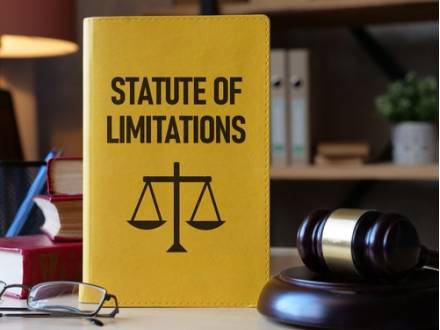 If you have been injured in a car accident in Virginia, time is of the essence when it comes to getting compensation. You may only have a limited window to take legal action against the driver who caused you injury, and once that window is up, you might be out of luck. A Loudoun County, VA car accident attorney can help file a claim on your behalf and make sure all the paperwork is done correctly.
If you have been injured in a car accident in Virginia, time is of the essence when it comes to getting compensation. You may only have a limited window to take legal action against the driver who caused you injury, and once that window is up, you might be out of luck. A Loudoun County, VA car accident attorney can help file a claim on your behalf and make sure all the paperwork is done correctly.
At Whitlock Law, we are highly familiar with personal injury law as it relates to car accidents. When you work with us, we will keep the statute of limitations in mind as we endeavor toward an efficient solution.
What Is The Statute of Limitations?
The statute of limitations is a time limit that restricts how long you have to take legal action against another person or entity. In Virginia, all car accident claims have a two-year statute of limitations. If you do not file a claim against the driver at fault before the statute of limitations runs out, you will not be able to pursue compensation for your damages.
Penalties and Diversion for Drug Possession in Virginia
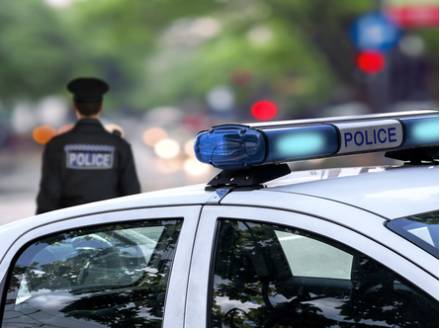
Virginia law is tough on users and distributors of illegal substances. Convictions can result in prison sentences, hefty fines, and license suspensions. Additionally, drug-related convictions can impact employment or job opportunities, eligibility for public benefits, housing, and other areas of your life.
At Whitlock Law, we will take the unique facts and circumstances of your case into account so that we can put up a strong defense on your behalf. Our Virginia criminal defense lawyers can help you strategize and negotiate for the best possible outcome in your case.
First Offense Drug Possession
If you have never been charged with drug possession before in Virginia, you may be eligible for deferred disposition under Va. Code 18.2-251. The Commonwealth’s "251" disposition can help you avoid a conviction as long as you obey the terms of probation. As part of these terms, you may be required to attend drug counseling or perform mandatory community service.
What Is Contributory Negligence in a Car Accident Lawsuit?
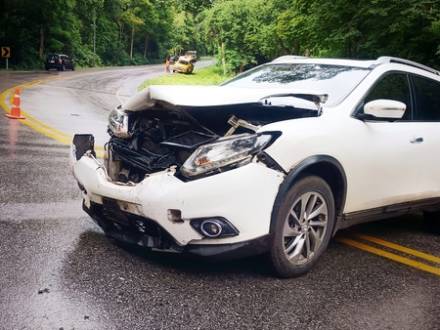 Every state has its own interpretation of negligence in car accident lawsuits. Most states use a model of comparative negligence, in which a plaintiff can get a portion of compensation even if he or she was partially at fault.
Every state has its own interpretation of negligence in car accident lawsuits. Most states use a model of comparative negligence, in which a plaintiff can get a portion of compensation even if he or she was partially at fault.
Virginia has an all-or-nothing approach to car accident lawsuits, known as contributory negligence. This law is very strict and it could be used to deny you compensation if you were injured in a car wreck. At Whitlock Law, our Fairfax, VA personal injury attorneys can give you legal advice after a car accident and represent you in negotiations with insurance companies. When you work with us, you will receive individual attention from our small firm, getting the benefit of our advocacy and representation until your case is resolved.
Defining Contributory Negligence
In Virginia, contributory negligence applies to all personal injury claims, including car accident damages. Under contributory negligence, you cannot collect any compensation for a car accident if you shared fault for the crash.
Will I Go to Jail for Drunk Driving in Virginia?
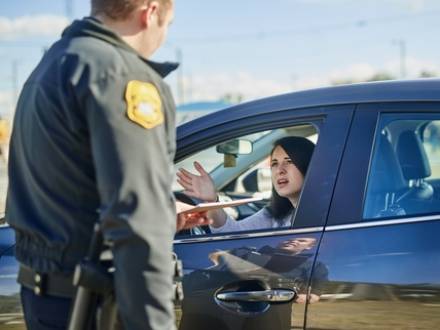 A drunk driving offense is many people’s first brush with law enforcement. If you have maintained a clean record up until a DUI arrest, you might be terrified at the thought of a prison sentence after a conviction. Whether or not you will go to jail for DUI is highly dependent on the circumstances of your arrest.
A drunk driving offense is many people’s first brush with law enforcement. If you have maintained a clean record up until a DUI arrest, you might be terrified at the thought of a prison sentence after a conviction. Whether or not you will go to jail for DUI is highly dependent on the circumstances of your arrest.
If you have been charged with DUI in Northern Virginia, the smartest thing you can do is to get in contact with a Virginia criminal defense attorney who can try to work out a strategy to have your charges reduced or dropped in court. At Whitlock Law, our lawyers are ready to safeguard your freedom with personalized representation and counsel.
First Offenses vs. Repeat Offenses
In Virginia, whether or not you are sentenced to jail on a first offense usually depends on whether you have an elevated blood alcohol content (BAC) or there are aggravating factors, such as a car accident with injuries.
Is it Worth Hiring a Lawyer After a Car Accident for Your Claim?
 The aftermath of a car accident can leave you in a state of pure panic, as you might be dealing with a totaled vehicle and injuries at the same time. You may be reluctant to add an attorney to the mix – after all, it can be sorely tempting to just go straight to the insurance company and be done with it – but you may find that seeking legal representation for a car accident is in your best interests.
The aftermath of a car accident can leave you in a state of pure panic, as you might be dealing with a totaled vehicle and injuries at the same time. You may be reluctant to add an attorney to the mix – after all, it can be sorely tempting to just go straight to the insurance company and be done with it – but you may find that seeking legal representation for a car accident is in your best interests.
A Loudoun County, VA car accident lawyer can help you overcome the hurdles to getting fair compensation after an auto wreck. At Whitlock Law, we are determined to make things right for you by holding the negligent driver responsible for your damages. Our firm has a history of securing rightful compensation for clients, including an $80,000 settlement for a client in Fauquier County who was injured in a sideswipe accident.
The Consequences of Driving Without a License in Virginia
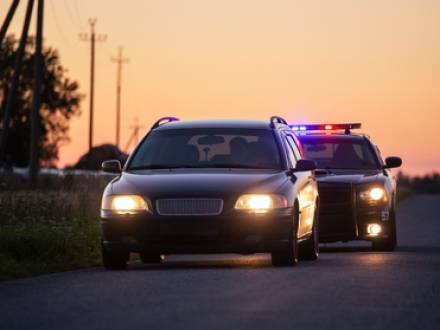 In 2021, the National Highway Traffic Safety Association (NHTSA) determined that unlicensed drivers accounted for nearly 11,000 fatal crashes. About 31.8 percent of drivers involved in fatal accidents have a previous license suspension or revocation, 17.2 percent have prior traffic offenses on their record, and 16.9 percent have at least one prior speeding conviction.
In 2021, the National Highway Traffic Safety Association (NHTSA) determined that unlicensed drivers accounted for nearly 11,000 fatal crashes. About 31.8 percent of drivers involved in fatal accidents have a previous license suspension or revocation, 17.2 percent have prior traffic offenses on their record, and 16.9 percent have at least one prior speeding conviction.
The laws in the state of Virginia – and every other state – prohibit any person from driving without a license. In some cases, driving without a license can even result in jail time and significant fines. If you have been charged with driving without a license, a Loudoun County, VA traffic defense attorney can help.
Can I Sue Someone Who Was Tailgating and Hit Me?
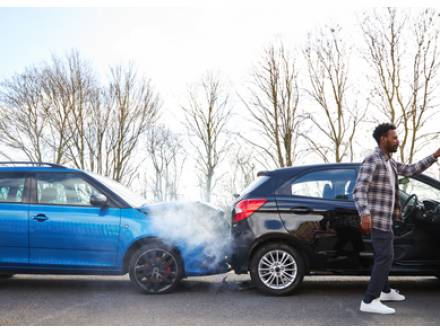 While most car accidents could be avoided with enough caution and common sense, the most senseless types of serious car accidents are often caused by tailgating. If you have been injured in an accident caused by another driver’s tailgating, you need a Loudon County, VA personal injury attorney who will help you obtain damages for injuries you sustained in the accident.
While most car accidents could be avoided with enough caution and common sense, the most senseless types of serious car accidents are often caused by tailgating. If you have been injured in an accident caused by another driver’s tailgating, you need a Loudon County, VA personal injury attorney who will help you obtain damages for injuries you sustained in the accident.
Are Tailgating Accidents Common?
Tailgating incidents are becoming far too common across Maryland and Virginia. Tailgating is an aggressive form of driving in which a driver speeds up to follow dangerously close to the vehicle in front. Without an appropriate distance, the car behind cannot stop if the car in front is forced to brake. Tailgating can be a dangerous form of road rage and the cause of a third of all car collisions.
2024 How Much Does a Personal Injury Lawyer Cost in Virginia?
It can be an overwhelming situation to deal with when you are pursuing a personal injury case all on your own. That’s why it is so beneficial to hire a personal injury lawyer to handle the larger details of your case on your behalf. Having someone on your side who understands the complexities of the law and can provide you with constant support can only be an advantage in your case. However, you may be wondering, "How much does a personal injury lawyer cost in Virginia?"
How Much Does a Personal Injury Lawyer Cost in Virginia?
It is difficult to determine beforehand how much a personal injury lawyer might cost in Virginia. However, most personal injury lawyers work on a contingency fee basis. Therefore, you do not have to pay anything upfront to secure legal representation in a personal injury case. Your attorney will only get paid if they win your case; if they do not obtain a settlement, you won’t owe them anything. If they do win, they will take a percentage of your settlement as their payment for their work on your behalf.
Average Personal Injury Settlement in Virginia (2024)
Facing the fallout of a personal injury situation can be overwhelming and daunting, especially if you are doing so without the help of an experienced personal injury lawyer. Having someone on your side who understands the logistics of what is needed for success can make all the difference. Either way, you should be as prepared as you can possibly be by understanding what the average personal injury settlement in Virginia is. With that in mind, you can pursue a number of your own.
What Is the Average Personal Injury Settlement in Virginia?
The unfortunate truth is that there is no real, reliable way to tell what the average personal injury settlement is in Virginia. Every personal injury case is different. Each case has its own set of details and circumstances that are unique to the individual situation. Just because a case that is similar to yours results in a substantial settlement amount, it does not mean that yours will, too.
To reach a settlement amount, many different factors have to be taken into consideration:
Virginia Hands-Free Driving Law 2024 Explained
Whether you live and work in the state or are just visiting, if you plan to drive in the state, you must understand the Virginia hands-free driving law. Failure to follow this law could lead to a ticket and other penalties, and the purpose of this law is to limit the risk of distracted driving accidents commonly caused by cell phone use behind the wheel. Hands-free devices are essential for using a phone while driving in the state.
What Does the Hands-Free Driving Law Require?
In Virginia, it is illegal for a driver to use a cell phone while driving without the use of a hands-free attachment, such as a Bluetooth connection to the vehicle’s stereo system. No matter how the driver configures their cell phone, they must be able to answer, speak, and hang up on calls without using their hands to operate the phone. Some hands-free attachments allow for full voice control or integrate with the vehicle using buttons on the steering wheel.






